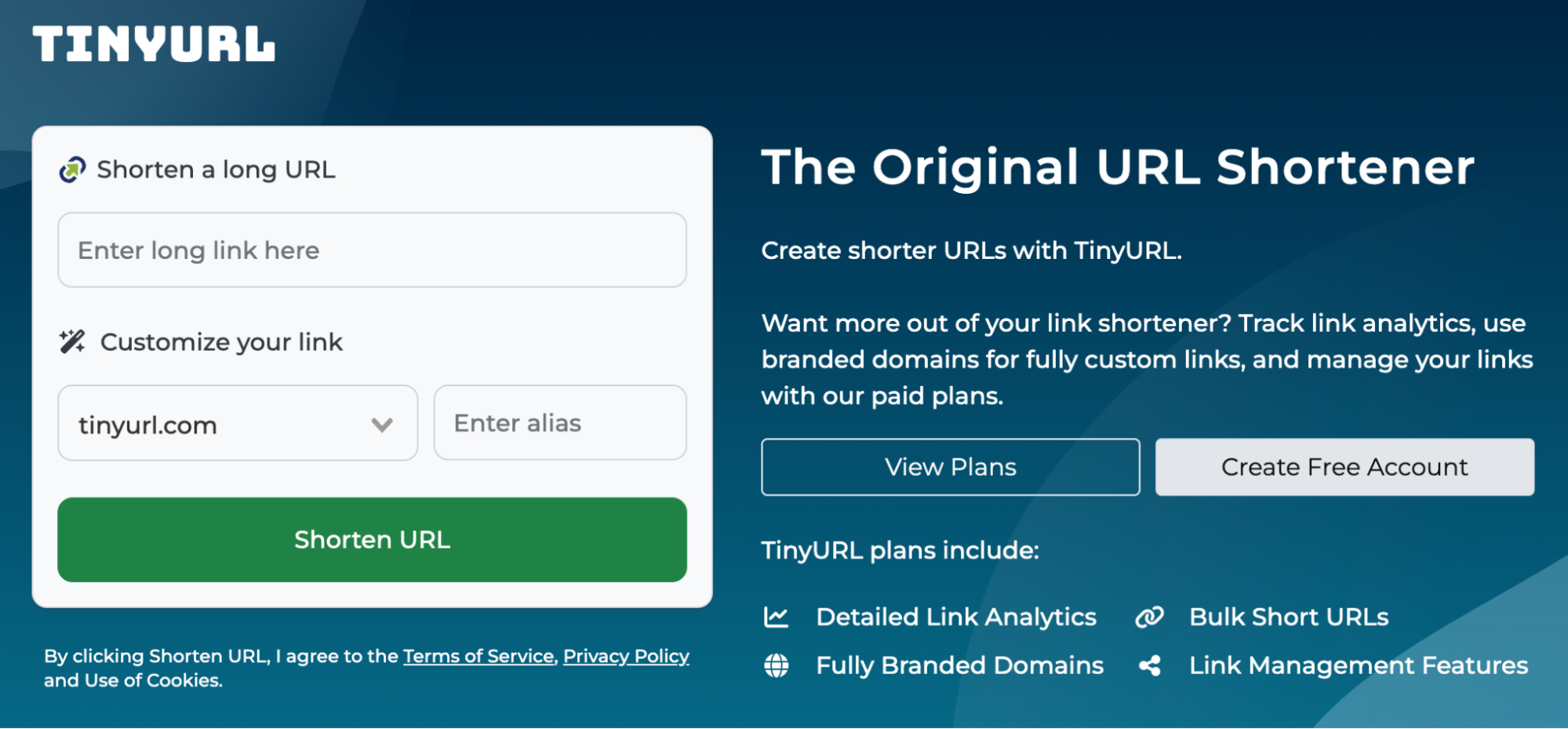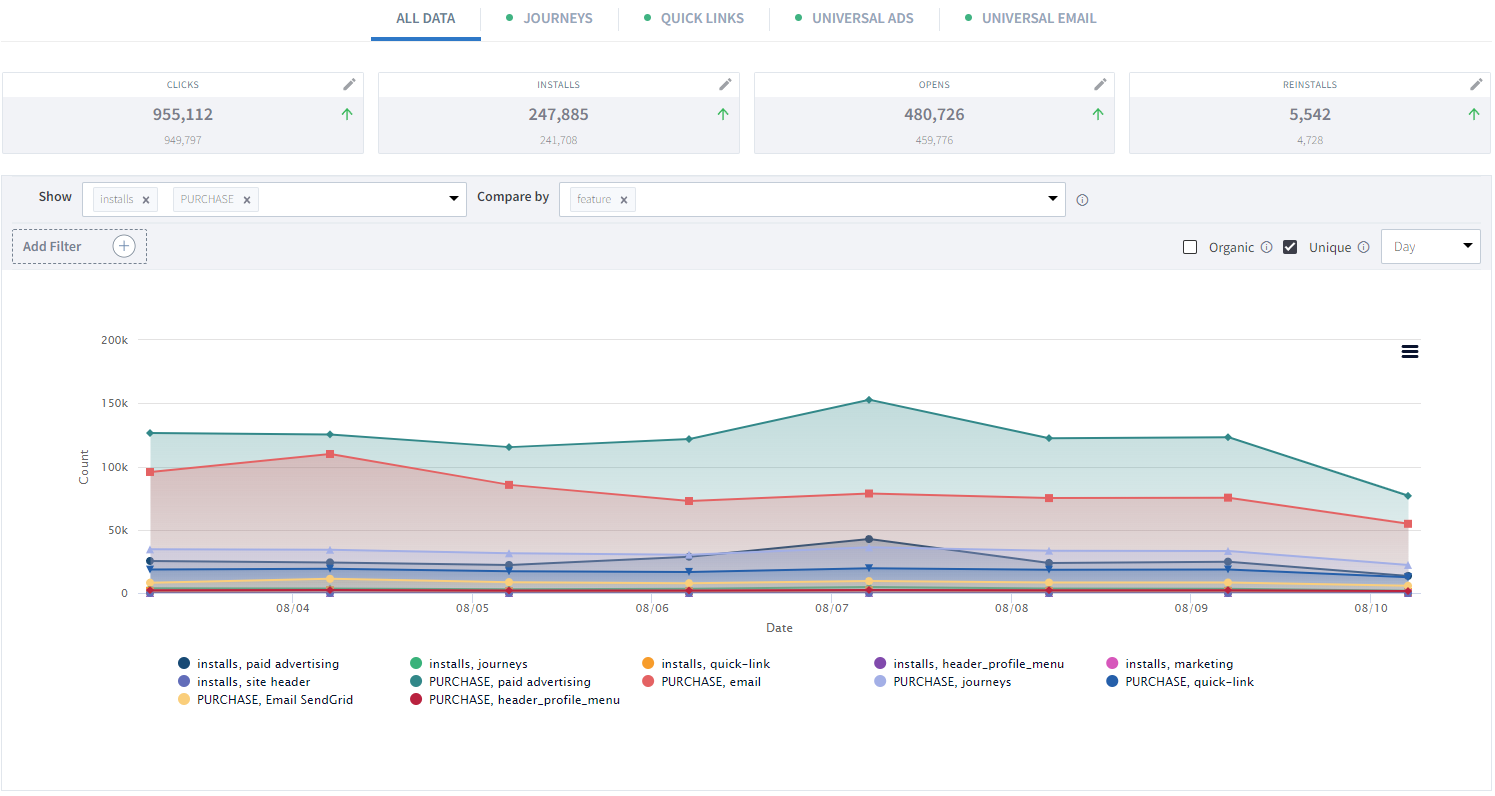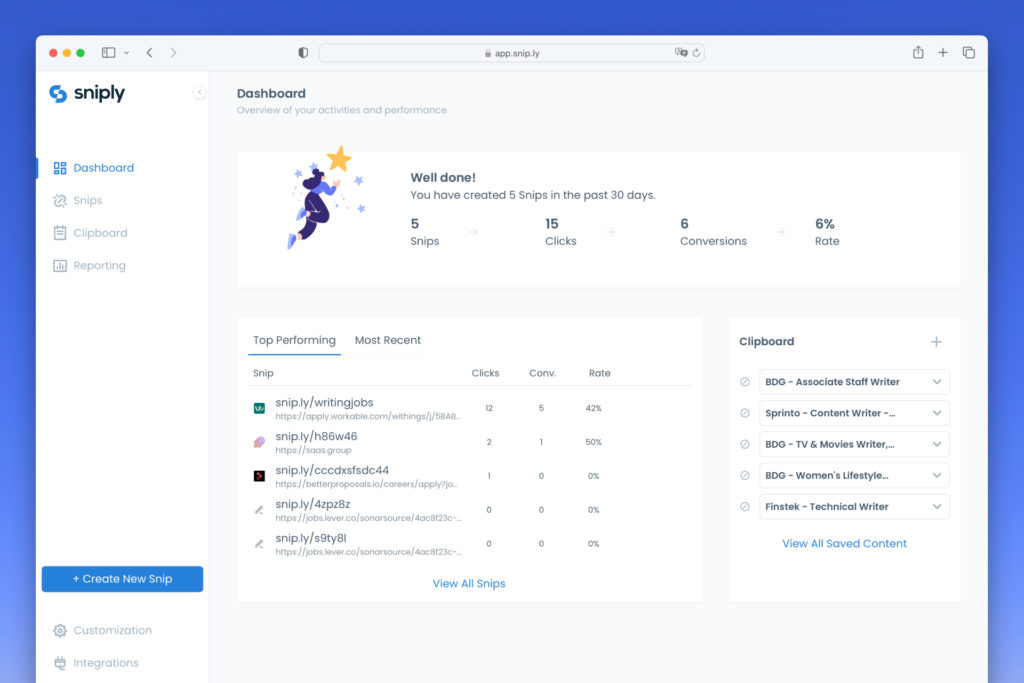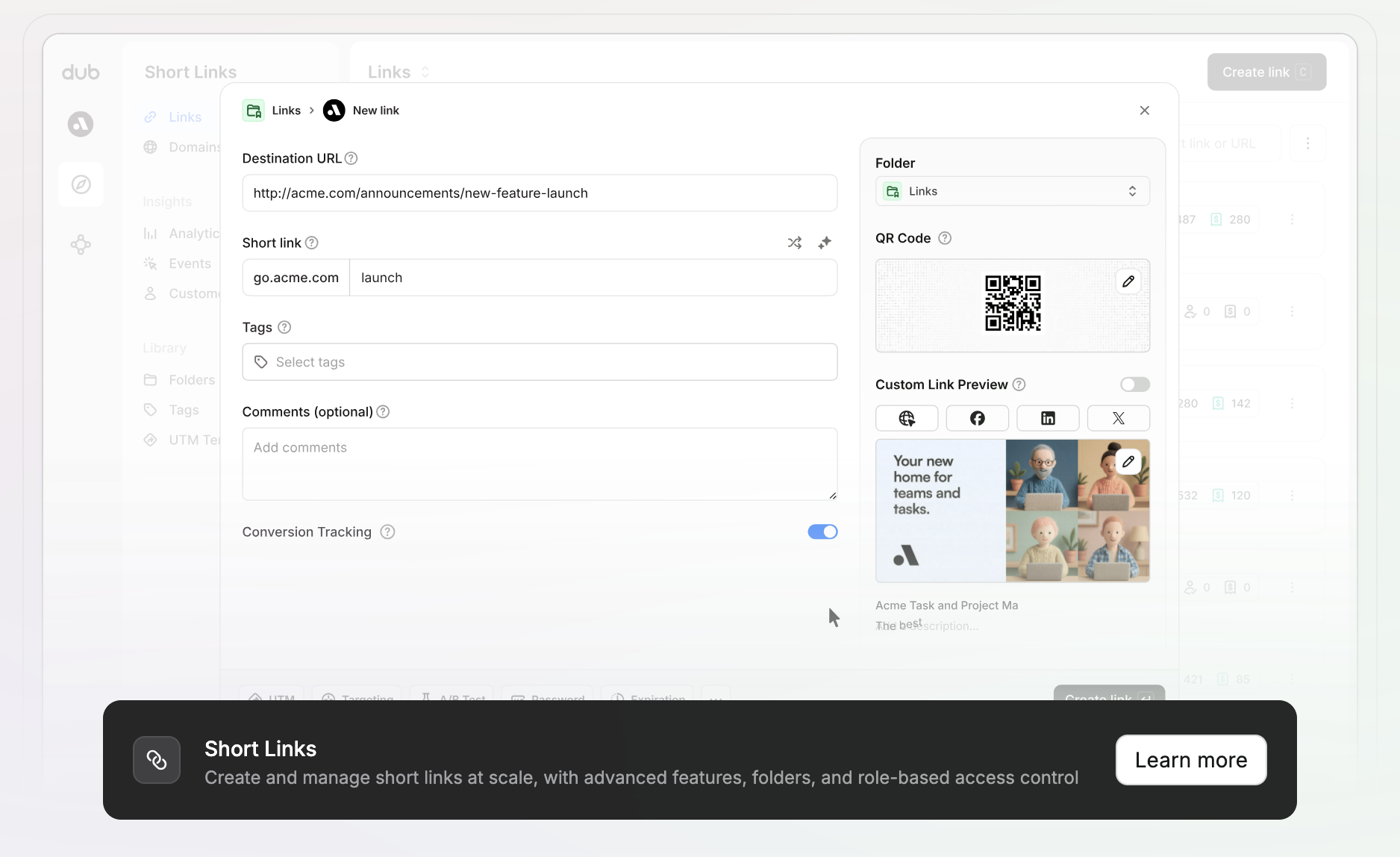Bitly is a well-known name in URL shortening. But in 2025, businesses need more than short links—they need a complete link management platform. Marketing teams rely on branded domains, analytics, API automation, and security compliance to manage branded links at scale.
As you build campaigns across email, SMS, and social media, Bitly's limitations become clear. Pricing changes, restricted custom domain access, and limited analytics force teams onto higher pricing tiers just to grow.
There are plenty of alternatives worth considering, depending on your goals. These platforms offer flexible domain management, deeper analytics, better collaboration tools, and transparent pricing that scales with your needs.
This guide explores eight of the best Bitly alternatives in 2025. We'll compare their strengths, limitations, pricing, features, APIs, and compliance protocols to help you find the right platform for your team.
What makes a great Bitly alternative?
A strong Bitly alternative does more than create branded short links—it centralizes, secures, and optimizes your links across every campaign. When evaluating alternatives, prioritize these features:
Custom domain management and branding flexibility
Branded short links drive 39% higher click-through rates and 25% higher trust than generic short URLs. Look for a platform that handles multiple custom domains to ensure consistent branding across every campaign.
Detailed analytics and reporting
You need insights beyond basic click counts. Performance analytics—like user device, location, and referrer data—help you measure ROI and optimize campaigns in real time.
Team collaboration and workspace management
Whether you're running an agency or building an in-house marketing team, collaboration matters. Choose a platform with multiple teammates, role-based permissions, and shared workspaces.
API access and integration capabilities
Developers and marketing ops teams rely on APIs to automate link creation, integrate analytics, and connect with CRMs and data tools. Look for alternatives with high rate limits and webhook support.
Pricing transparency and value
Bitly's enterprise tiers get expensive fast. Alternatives like Rebrandly and Replug often provide more features at lower cost, with transparent pricing for each tier.
Enterprise-grade security and compliance
Make sure your alternative is GDPR compliant. If you operate in highly-regulated industries like finance or healthcare, ensure your platform offers SOC 2 or HIPAA compliance, secure data handling, and SSO support.
Now that we know what features to look for, let's examine where Bitly struggles.
Where Bitly falls short
Bitly has name recognition and a simple interface that works well for basic link shortening. But as teams scale their campaigns, limitations emerge:
- Pricing: Enterprise plans are expensive and scale poorly for growing teams.
- Custom domains: Lower plans restrict branded short links, forcing upgrades.
- Analytics: Dashboards show only basic campaign data.
- API rate limits: Developers hit usage caps quickly.
- Collaboration: Limited workspace features and permissions controls.
For teams that need more advanced capabilities, these alternatives offer better functionality, pricing, or both.
The 8 best Bitly alternatives in 2025 (features + pricing)
1. Rebrandly - The best overall Bitly alternative for enterprise businesses

Rebrandly is the most comprehensive Bitly alternative for teams that need secure, scalable link management. It offers branded domains, traffic routing, UTM automation, and real-time data streaming.
Key advantages over Bitly:
- More affordable enterprise pricing
- Superior custom domain management (multiple domains per plan)
- Advanced UTM parameter presets and variables
- Real-time analytics via Rebrandly Analytics
- Webhooks and server-to-server datastreams
- Workspaces, teammates, and granular permissions
- 99.99% uptime and HIPAA compliance with reports via The Rebrandly Trust Center
Pricing: Free plan available; Pro starts at $24/month (vs. Bitly's $35/month).
Rebrandly works best for fast-growing marketing teams, agencies, and enterprises that require secure, branded link infrastructure.
The platform has a steeper learning curve than simpler alternatives, but the feature depth makes it worthwhile for teams managing links at scale.
2. Short.io - The developer-friendly alternative for link shortening

Short.io (formerly short.cm) appeals to technical teams who want flexibility without vendor lock-in. It's built for developers and offers solid API documentation, webhook support, and a simple interface.
Key advantages over Bitly:
- Strong API functionality with high rate limits
- Competitive pricing structure
- Custom domain support across plans
- Fast setup and DNS management
Pricing: Starts at $19/month, with enterprise plans well below Bitly's.
Short.io is ideal for developers and tech-savvy teams who need to automate link creation and tracking workflows.
The platform can be less intuitive for non-technical users and lacks detailed analytics compared to Rebrandly.
3. TinyURL - The best free URL shortener

TinyURL is one of the longest-running URL shorteners—and still one of the simplest. With no registration required, it's ideal for quick, disposable links.
Key advantages over Bitly:
- Completely free
- No registration or account setup
- Minimalistic, clutter-free interface
Pricing: Free.
TinyURL works best for individuals and small projects with basic shortening needs.
It provides no analytics, no custom domains, no collaboration tools, and no API.
4. Branch.io - The mobile-first link shortener

Branch.io goes beyond link shortening—it specializes in deep linking and mobile attribution. It helps marketers connect users from web to app seamlessly, making it ideal for app-first brands.
Key advantages over Bitly:
- Deep linking across apps and platforms
- Attribution tracking for installs and in-app events
- Strong SDK and API support for mobile developers
Pricing: Custom quotes based on usage.
Branch.io is built for mobile developers, mobile-first marketers, and app publishers.
It can be overly complex for simple URL shortening and requires more setup than other platforms.
5. Sniply - The content marketing alternative

Sniply adds custom call-to-action overlays to links you share. It's perfect for marketers who want to capture leads or promote content while sharing third-party articles.
Key advantages over Bitly:
- Add branded CTAs on top of any shared page
- Capture leads directly from shared links
- Designed for content amplification and remarketing
Pricing: Starts at $29/month.
Sniply was built for content marketers and social media teams.
It's limited to niche use cases, can feel intrusive to users, and lacks enterprise-grade link management features.
6. Replug - The marketing-focused alternative

Replug combines shortening, analytics, retargeting, and lead generation into one marketing toolkit. It's a strong choice for small marketing teams that need multi-channel campaign tracking.
Key advantages over Bitly:
- Built-in retargeting pixel management
- Custom CTA overlays
- Advanced marketing automation
- Social media optimization tools
- Lower cost than Bitly's premium plans
Pricing: Starts at $19/month.
Replug works for eCommerce marketers and agencies running campaigns across multiple platforms who need granular retargeting support.
If you don't need retargeting, Replug can feel complex for simple use cases and is less suited for enterprises that require compliance and audit trails.
7. Dub.co - The open-source alternative

Dub.co is an open-source alternative that gives you complete control of your link shortening. You can self-host it, modify the code, and manage all data internally—ideal for privacy-conscious teams or developers who want transparency.
Key advantages over Bitly:
- 100% open source (MIT license)
- No vendor lock-in
- Customizable front-end and back-end
- Active developer community
Pricing: Free (self-hosted) or $20/month for hosted version.
Dub.co is ideal for technical teams or startups that require custom infrastructure and want to support open-source software.
It requires technical setup, ongoing maintenance, and lacks dedicated support.
8. Ow.ly (Hootsuite) - The social media alternative

Ow.ly, built into Hootsuite, is a solid option for social media marketers who want to shorten, track, and analyze links within the same dashboard they use for content scheduling.
Key advantages over Bitly:
- Fully integrated with Hootsuite
- Link performance tracking per social post
- Built-in analytics dashboard
Pricing: Included with Hootsuite Pro plans starting at $99/month.
Ow.ly is a proprietary link shortener for social media managers who already use Hootsuite.
It's only useful inside Hootsuite, not as a standalone URL shortener.
Top Bitly alternatives feature comparison chart
Key insights:
- Rebrandly offers the best all-around value for businesses at every tier.
- Most alternatives provide more flexible custom domain management.
- API access and analytics depth are major differentiators between legacy tools and newer platforms.
- Compliance remains rare—Rebrandly stands alone with SOC 2 and HIPAA credentials.
Now, let’s take a look at how to switch from Bitly to an alternative link management tool that fits your company’s unique needs.
How to migrate from Bitly to a new link management platform
Switching platforms can feel intimidating—especially if you have years of campaigns and automations in Bitly already. The good news is that most modern link management tools make migration simple. Ensure a seamless, low-risk transition to your new platform by following these four simple steps.
1. Audit your Bitly setup
Before you move anything, take stock of what you already have. Export your existing links, tags, and analytics. Document:
- Custom domains
- Branded short links
- UTM parameters
- Integrations (Zapier, CRMs, etc.)
- Team access levels
This audit gives you a complete picture of your current link ecosystem and prevents important assets from slipping through the cracks.
2. Choose your alternative
Next, decide which platform best fits your business goals and technical requirements. Each alternative has its strengths—whether you’re optimizing for budget, compliance, or developer flexibility:
- Budget-conscious? TinyURL or Replug
- Enterprise? Rebrandly
- Developers? Dub.co or Short.io
- Mobile-first? Branch.io
This step is all about alignment: matching your use cases, security needs, and growth plans with the right link management infrastructure.
3. Plan your migration
Once you’ve chosen your platform, it’s time to prepare for the actual move. Most providers offer import tools that make this process easier, but you’ll still want to handle the setup methodically:
- Set up custom domains and DNS records
- Import links (many platforms offer Bitly import tools)
- Recreate key tags, UTMs, and analytics setups
- Connect integrations and automation workflows
Taking the time to plan ensures your links remain active and your reporting continuity stays intact during the transition.
4. Make the switch
When your new platform is ready, run a short testing period to confirm everything works as expected. This time minimizes disruption and keeps your analytics accurate:
- Run both platforms in parallel for 1–2 weeks
- Update campaign materials and assets
- Train your team on the new dashboard
- Monitor analytics and performance closely
With testing complete and tracking verified, you can confidently retire Bitly and enjoy the flexibility, branding, and data insights of your new link management platform.
Pro tip: Rebrandly, Short.io, and Replug all offer migration assistance—making it easy to import your links and analytics automatically.
The future of link management is with the right Bitly alternative
In 2025, link management is no longer just about shortening URLs—it’s about building trusted digital connections.
Bitly paved the way to create short links for your URLs, but today’s businesses need more: custom branded links, analytics, automation, and compliance.
Here’s the quick summary:
- Best overall: Rebrandly — full-featured, affordable, and enterprise-secure.
- Tech-savvy choice: Dub.co or Short.io.
- Budget option: TinyURL.
- Mobile-first marketers: Branch.io.
- Content marketing-focused: Replug or Sniply.
Sign up for a free Rebrandly account and see how professional link management can transform your campaigns.



.jpg)

.jpg)



